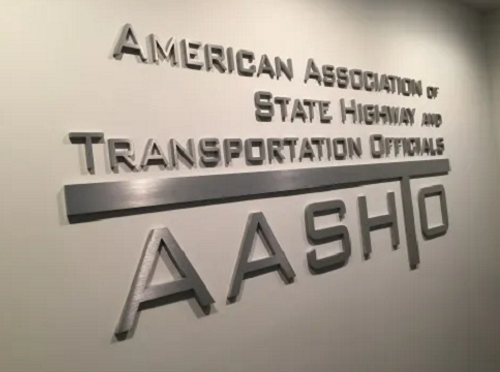The American Association of State Highway and Transportation Officials recently submitted a six-page comment letter to the Council on Environmental Quality or CEQ regarding proposed revisions to the National Environmental Policy Act or NEPA.
[Above photo by AASHTO]
The CEQ issued a notice of proposed rulemaking in July in which the agency seeks to create a more “effective environmental review process” that promotes better decision making; ensures full and fair public involvement; provides for an efficient process and regulatory certainty; and provides for sound decision making grounded in science, including consideration of relevant environmental, climate change, and environmental justice effects.
AASHTO noted in its comment letter that it “shares CEQ’s goals” of providing for efficient and effective environmental reviews, ensuring full and fair public involvement, providing regulatory certainty, promoting better decision-making grounded in science, and protecting the environment.
To that end, AASHTO offered a slate of comments regarding CEQ’s proposed rule:
- The group supports provisions in the 2020 regulations that modernized the NEPA process, improved efficiency, enhanced accountability, and encouraged interagency coordination on compliance with NEPA and the requirements of other environmental laws and supports their retention in CEQ’s proposed rule.
- AASHTO said CEQ’s NEPA regulations should be legally sound, grounded in the statute – as recently amended by the Fiscal Responsibility Act and recent case law – and build upon well-established principles developed through decades of agencies’ experience implementing NEPA. “The significant regulatory changes over the past few years have caused uncertainty, additional work, delays in project delivery, and litigation risks for projects,” the group said in its letter. “Another significant upheaval to the NEPA process and regulatory requirements will only compound these problems.”
- AASHTO noted that there should be no “one-size-fits-all” way to comply with NEPA. “Each transportation project is unique,” the group pointed out in its letter. “Flexibility [is needed] to tailor the NEPA process based on a particular project’s circumstances [so] agencies should be able to meet NEPA’s requirements in a way that minimizes the financial and administrative burdens, informs public decisions, protects the environment, and avoids unintended consequences such as public or agency uncertainty and increased litigation risk.”
- AASHTO said CEQ’s NEPA regulations should provide clear direction to agencies, project sponsors and applicants, and the public. “To improve agency and public understanding of the regulatory framework, CEQ should be clear about which aspects of the regulations are statutorily required,” the group emphasized. “AASHTO is concerned that CEQ’s proposed regulations introduce new undefined terms and create new vague requirements, which will lead to delays in project delivery and increase litigation risk for projects. For example, in various areas throughout the regulations, CEQ proposes to replace the term ‘significant’ with the ambiguous and undefined terms ‘important’ or ‘substantial.’”


